Particle Physics
-
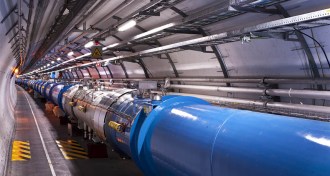 Particle Physics
Particle PhysicsA weasel has shut down the Large Hadron Collider
A tiny furball brought Earth’s most powerful particle accelerator to its knees this morning.
-
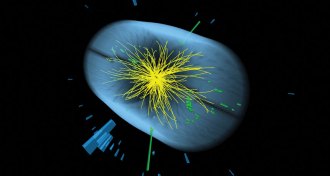 Particle Physics
Particle PhysicsTheorists perplexed by hints of unexpected new particle
Hints of a potential new particle at the LHC have scientists excited, and theoretical physicists are beginning to converge on explanations.
-
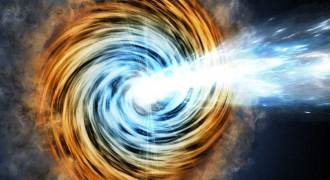 Astronomy
AstronomyPossible source of high-energy neutrino reported
Scientists may have found the cosmic birthplace of an ultra-high energy neutrino: a blazar 9 billion light years away.
-
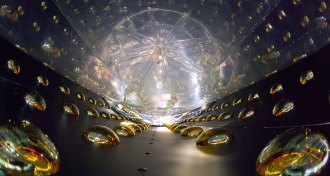 Particle Physics
Particle PhysicsReactor data hint at existence of fourth neutrino
A nuclear reactor experiment in China is providing new hints that a fourth type of neutrino, one more than the standard model of physics allows, may exist.
By Ron Cowen -
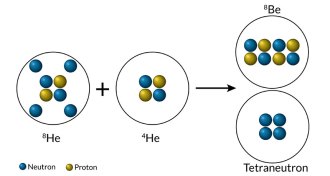 Particle Physics
Particle PhysicsPhysicists find signs of four-neutron nucleus
Strong evidence of a tetraneutron, an atomic nucleus with four neutrons but no protons, defies physicists’ theoretical expectations.
By Andrew Grant -
 Particle Physics
Particle PhysicsEntanglement is spooky, but not action at a distance
Recent experiments on quantum entanglement confirm that it’s spooky, but it was not, as Einstein implied, action at a distance.
-
 Particle Physics
Particle PhysicsQuantum spookiness survives its toughest tests
Recent experiments on quantum entanglement confirm that it’s spooky, but it was not, as Einstein implied, action at a distance.
-
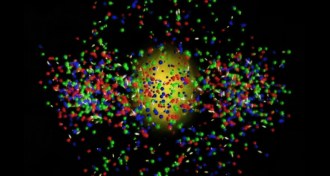 Physics
PhysicsEarly quark estimates not entirely realized
Decades of research have shed a little light on quarks, the mysterious building blocks of atoms.
-
 Science & Society
Science & SocietyClimate, new physics and Jupiter on the horizon for 2016
The first issue of the new year features stories about what will, editor in chief Eva Emerson predicts, hold on as scientific newsmakers during 2016.
By Eva Emerson -
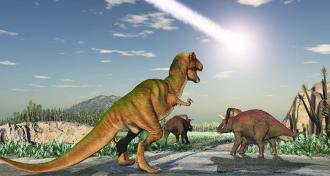 Particle Physics
Particle PhysicsDark matter helped destroy the dinosaurs, physicist posits
In ‘Dark Matter and the Dinosaurs,’ Lisa Randall finds connections between particle physics, cosmology, geology and paleontology.
By Andrew Grant -
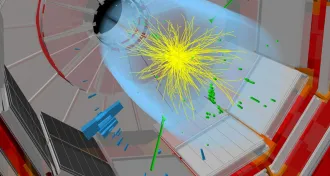 Particle Physics
Particle PhysicsLHC restart provides tantalizing hints of a possible new particle
The first comprehensive analyses of the recently restarted Large Hadron Collider yields no clear-cut discoveries but at least one intriguing hint of a new particle.
By Andrew Grant -
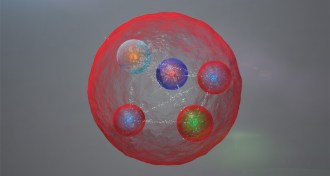 Particle Physics
Particle PhysicsYear in review: Collider creates pentaquarks
Two particles discovered in 2015 are each composed of five quarks.
By Andrew Grant